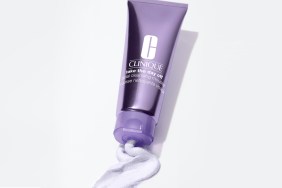Skin is weird. I mean, anyone past the age of 16 could tell you a story about a bump, an acne scar, an itch or a funky mole they’re hiding. Anyone could tell you, but they probably won’t. We tend to keep our little embarrassing skin issues to ourselves—all the more reason why you should see a dermatologist.
We also have a tendency to dismiss skin flare-ups as not being that important, something that will go away on its own, or is treatable with over-the-counter (OTC) products. As a result, too many of us are on our tenth brand of OTC face wash and acne cream, with no improvement in sight.
The fact is, not only should you see a dermatologist when certain telltale skin, hair and nail issues pop up; you should be seeing one annually for a general skin test and a once-over. Skin tests can help you determine allergies and ingredients to avoid, plus they can help detect early issues that might lead to bigger problems down the road. Read below to find out the non-negotiable situations when an appointment is a must and what you should say to the doctor once you get there.
More Moles, More Problems
Most people don’t know how crucial early detection is in treating and eliminating melanoma (that’s skin cancer). Most people assume it’s a problem only when you reach that middle-age mark, but that’s just not true. I’ve personally known several people instructed to have moles removed in their 20s and younger. But you can’t get that important confirmable advice without seeing a dermatologist. So, start paying attention to your skin now. Make an appointment especially if you notice new moles, ones with irregular shapes, coloring or that have changed size since you last looked.
Scalp and Hair Issues
Scalp feeling a little itchy? Noticing more hair going down the drain than usual? That’s something for your dermatologist to investigate. Itchy, dry scalp can be aided with over-the-counter dandruff shampoos, but just to be sure it’s not a bigger problem or if those don’t work, consult your skin doc–it’s your best bet. Hair loss can be caused by a number of issues. Sometimes it’s just stress, other times it’s a sign of an illness that needs medical attention. Don’t you want to know for sure?
Brittle or Discolored Nails
Don’t feel bad if you didn’t know the dermatologist does more than fix acne and administer Botox! She also cover nails. You’ve probably seen commercials for over-the-counter nail fungal treatments. No, it’s not pretty. So if you notice your nails are yellowing, if you have pain around your nail beds, and/or if they break constantly, it’s time to see the dermatologist. You may have an infection that won’t clear up without treatment. Sure, your doctor may tell you to buy a cream at the drugstore, but you may also need a prescription. Either way, you’ll walk away with peace of mind.
Persistent and Worsening Acne
Just about every woman I know knows this is a dermatologist’s area of expertise, and yet, they continue to struggle with flare-ups and breakouts on their own, buying one drugstore product after another that doesn’t work. If your acne is a regular problem, if treatments from Walgreen’s just aren’t helping, make an appointment. Understand treating acne is part science, part guessing game. But obviously, the best guesses and highest success rates come from a medical professional. If you have acne that’s caused scarring or acne lesions that are festering, you should also see a dermatologist. They can recommend ways to avoid future scarring and potential treatment for existing marks.
Skin Rashes and/or Dry Patches
How many times has a section of your skin become red and you just kind of ignored it until it went away? It’s true, many rashes are short-term and innocuous. And it’s obvious why your skin is red if you accidentally stepped in a patch of poison ivy. But, you shouldn’t diminish the possibility that a rash can indicate a more serious problem, especially if it’s recurring. There’s no way any lay person can tell you what’s going on with a skin rash. There are just too many possibilities and factors involved in what makes them surface. So be safe, see a dermatologist.
A Change in Perspiration or Severe Sweating
Think sweating is just an issue for guys? Nope. Plenty of women have overactive perspiration problems and body odor issues relating to perspiration, but they’re afraid to talk about it. Guess what? That’s what your dermatologist is for! If you think you sweat excessively, if your deodorant feels ineffective or if you’ve recently noticed a change in the amount you perspire, make an appointment. Mucho sweat can indicate something is wrong elsewhere in your body like an infection, diabetes or a thyroid problem, according to the Director at The Center for Dermatology, Cosmetic and Laser Surgery in Mount Kisco, New York, Dr. David Bank.
Be Prepared and Be Sure to Ask…
Beyond the obvious questions that would bring you into the office in the first place, while you’re there, your dermatologist can give you preventative and maintenance advice that’s tailored to you, taking into account your skin type, age, the amount of sun exposure you’ve had thus far and they also know the best sunscreens to use. Ask how well you’re aging and if there’s anything you can do for your skin you’re not doing already in terms of keeping it healthy and youthful. Be sure to get advice on lifestyle choices that benefit your skin. They include diet, exercise, ingredients to avoid that crop up in many skincare products and what you really need in a moisturizer (everyone on the market will tell you it’s the perfect solution, but no solution is perfect for all).
If you’ve yet to have a general skin examination in your life, make sure you ask for one, even if you’re in the office to get prescription dandruff shampoo. Have the doctor look at your moles, too. Ask if you should receive a skin allergy test. Ask about any non-acne-related scars. Each scar is different. Some can be treated, others can’t. Ask the doctor to know for sure.
And before you go to your appointment, be sure to come bare faced, bring your ID and insurance cards, come prepared with your list of questions and concerns and bring a notebook with you. If this is your first time sitting down with a dermatologist, you’ll definitely be learning a lot. Do yourself a favor and write everything down.
Before you commit to any procedures, be sure to check with your insurance group first to see what and how much of the procedure is covered. Elective procedures are expensive, don’t assume insurance covers everything just because they’ve got a dermatologist checkup in the plan.








